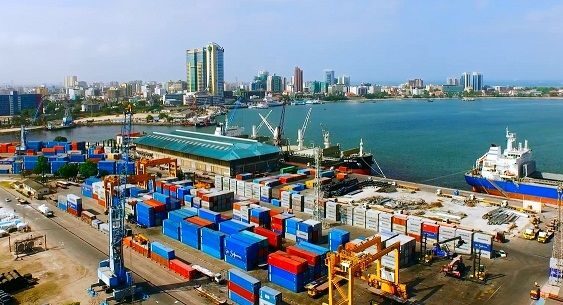- MPILO HOSPITAL IN NEEDS OF MASSIVE INFRASTRUCTURAL CHANGE IN ZIMBABWE
- HOW MDCB BAIL OUT BOSTWANA MINERGY OVER LOST OF COAL PRODUCTION
- WHY ACCESS TO WATER IS STILL A MAJOR ISSUE IN AFRICA
- PRE DEVELOPMENT SET TO UNHELD PROMISE OF HADABA PROJECT DESPITE SEVERAL SETBACK IN EGYPT
- WHY MOROCCO WANT TO CUT ENERGY DEPENDENCE FROM SPAIN
WHY DAR PORT NEEDS STRATEGIC INVESTMENTS TO BOOST EFFICIENCY IN TANZANIA

The Dar es Salaam Port has a huge potential to become the regional powerhouse and substantially contribute to the country’s economic growth if it gets the right and strategic investment to improve and boost its operations.
From the strategic point of view, the Dar es Salaam port is well positioned to serve more land-linked countries at cost-efficient services thus giving it a high comparative advantage over its peer ports.
However, failure to get the right and strategic partner has for years derailed the Dar Port’s efforts to boost its efficiency and contribution to the country’s Gross Domestic Product (GDP) and job creation.
For example, for more than 20 years when the Tanzania International Container Terminal Services (TICTS) was serving its contract of container handling at the port, the capacity of the Dar Port rose to the maximum of 17 million tonnes in only a year.
In its strategy aimed at boosting the capacities of its three ports namely the Dar es Salaam, Tanga, and Mtwara, the Tanzania Ports Authority TPA) targets 27.5 million tonnes of cargo by the 2024/2025 financial year but this is still below Mombasa port capacity of 34 million tonnes annually.
The TPA forecasts to reach a target of 30 million tonnes by 2030 or going beyond. To make this dream a reality there is a need for a right and strategic partnership investment.
The Dar es Salaam Port not provides a gateway for 90 percent of Tanzanian trade but is also the access route to six land-linked countries namely Malawi, Zambia, Burundi, Rwanda, and Uganda, as well as the Democratic Republic of Congo (DRC).
DP World, Manager of Business Development Research and International Relations for the Middle East and Africa Region, Mr. AbdulAziz Al Marzooqi said recently in an interview that the Dar port has great potential to transform itself into Africa’s trade and logistic hub.
“The Dar es Salaam port has a great potential to connect African countries with their global counterparts that have fast-growing economies and contribute largely by increased port businesses,” he said.
For example, as of October this year, the DP World, the Dubai-based global port, currently operates four terminals at Jebel Ali Port, which contributes 33 percent to Dubai’s economy.
Similarly, Singapore port, one of the world’s busiest ports that play an essential role in global trade currently contributes over 10 percent of Singapore’s economy and creates jobs for more than 180,000 people.
It is from this backdrop that the Dar es Salaam port needs to get the right and strategic partner to bring about the transformation of its operations to compete with peer ports and enhance its contribution to economic growth.
Equally, after the exit of the private container handling company TICTS at the Dar port, it is high time for the TPA to find the right partner investor to make a serious investment in modern port facilities and infrastructures that will boost the port efficiencies.
TPA and TICTS parted ways recently after the latter had served its container handling contract at the Dar es Salaam port for 22 years.
The TPA Director General, Mr. Plasduce Mbossa said recently that there is a need for more investments in port infrastructures to enhance port capacity and efficiency which will boost revenue and lower the cost of goods and services.
“Therefore, we must invest in modernizing our ports to contain and capitalize on the huge demand for port services from the neighboring countries,” he said.
He said the contribution of ports to the economy is huge including revenues as well as the cost of goods and services in the country.
He said the huge investment made by the government had improved the operational efficiency of the country’s ports which created a huge demand for port services from the neighboring countries.
“A lot is being done by the sixth phase government on port infrastructure investments including installation of modern cargo handling facilities…. “With these, we have witnessed rising cargo volumes and strong demand for our port services from land-linked countries,” he said.
He said to stay at the heart of competition with regional and global ports, the improvement of operational efficiency is of no compromise.
SOURCE: DailyNews

